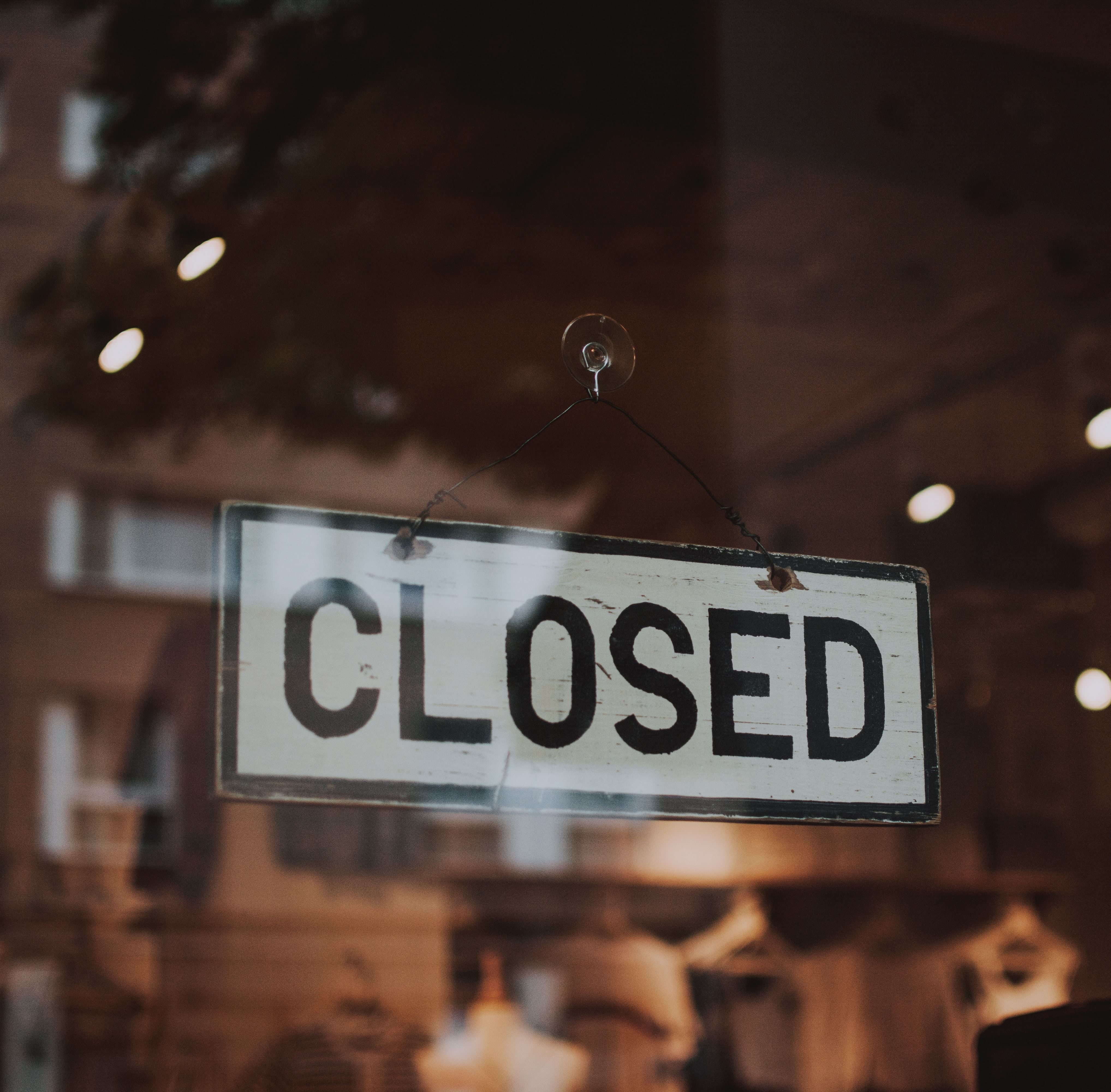What are the possible consequences of breaking his COVID-19 Order Issued on November 15, 2020?
As we once again face a lock-down order by Governor Jay Inslee, people are asking what happens if they do not follow the new order? To answer those questions, we need to look at what was ordered.
On Sunday, November 15, 2020, at 11:00 a.m. Pacific, Governor Jay Inslee took to the airwaves to announce a second Lockdown of activities in Washington State. The second lockdown took effect today, November 16, 2020, for most Washingtonians. Regardless of your position on the necessity for the order, there are serious consequences for breaking an emergency order by the Governor.
What has been ordered?
Per the November 15, 2020 order, the new restrictions are as listed below:
Restriction modifications for all counties effective midnight on Monday, November 16, unless otherwise noted. If the activity is not listed, it should follow its current guidance. All K- 12/higher education, health care, and childcare are exempt from the new restrictions and will follow current guidance. These restrictions do not apply to courts and judicial branch-related proceedings.
- Indoor Social Gatherings with people from outside your household are prohibited unless they (a) quarantine for fourteen days (14) prior to the social gathering; or (b) quarantine for seven (7) days prior to the social gathering and receive a negative COVID- 19 test result no more than 48-hours prior to the gathering. A household is defined as individuals residing in the same domicile.
- Outdoor Social Gatherings shall be limited to five (5) people from outside your household.
- Restaurants and Bars are closed for indoor dine-in service. Outdoor dining and to-go service are permitted, provided that all outdoor dining must comply with the requirements of the Outdoor Dining Guidance. Table size for outdoor dining is limited to a maximum of five (5) people. These modified restaurant and bar restrictions go into effect at 12:01 a.m. Wednesday, November 18, 2020.
- Fitness Facilities and Gyms are closed for indoor operations. Outdoor fitness classes are permitted but are subject to and limited by the outdoor social gathering restriction listed above.
- Bowling Centers are closed for indoor service.
- Miscellaneous Venues: All retail activities and business meetings are prohibited. Only professional training and testing that cannot be performed remotely, as well as all court and judicial branch-related proceedings, are allowed. Occupancy in each meeting room is limited to 25 percent of indoor occupancy limits or 100 people, whichever is fewer.
▪ Miscellaneous venues include: convention/conference centers, designated meeting spaces in a hotel, events centers, fairgrounds, sporting arenas, nonprofit establishment, or a substantially similar venue.
- Movie Theaters are closed for indoor service. Drive-in movie theaters are permitted and must continue to follow current drive-in movie theater guidance.
- Museums/Zoos/Aquariums are closed for indoor service.
- Real Estate: Open houses are prohibited.
10. Wedding and Funerals: Ceremonies are limited to a total of no more than 30 people. Indoor receptions, wakes, or similar gatherings in conjunction with such ceremonies are prohibited.
11. In-Store Retail shall be limited to 25 percent of indoor occupancy limits, and common/congregate seating areas and indoor dining facilities such as food courts are closed.
12. Religious Services are limited to 25 percent of indoor occupancy limits, or no more than 200 people, whichever is fewer. Congregation members/attendees must wear facial coverings at all times and congregation singing is prohibited. No choir, band, or ensemble shall perform during the service. Vocal or instrumental soloists are permitted to perform, and vocal soloists may have a single accompanist. Outdoor services must follow the Outdoor Dining Guidance, found here, applicable to the structure or facility.
13. Professional Services are required to mandate that employees work from home when possible and close offices to the public if possible. Any office that must remain open must limit occupancy to 25 percent of indoor occupancy limits.
14. Personal Services are limited to 25 percent of indoor occupancy limits.
▪ Personal service providers include: cosmetologists, cosmetology testing, hairstylists, barbers, estheticians, master estheticians, manicurists, nail salon workers, electrologists, permanent makeup artists, tanning salons, and tattoo artists.
15. Long-term Care Facilities: Outdoor visits are permitted. Indoor visits are prohibited, but individual exceptions for an essential support person or end-of-life care are permitted. These restrictions are also extended to the facilities in Proclamation 20-74, et seq. All other provisions of Proclamations 20-66, et seq., and 20-74, et seq., including all preliminary criteria to allow any visitors, remain in effect.
16. Youth and Adult Sporting Activities: Indoor activities and all contests and games are prohibited. Outdoor activities shall be limited to intra-team practices only, with facial coverings required for all coaches, volunteers and athletes at all times.
WHAT ARE THE PENALTIES FOR VIOLATING THE ORDER?
You may be wondering what risk you take if you decide to violate the Washington State Second Lockdown Order? Violators of the order are subject to criminal penalties pursuant to RCW 43.06.220(5). This statute makes the violation punishable as a gross misdemeanor criminal offense – up to 364 days in jail and/or a $5,000 fine. If you have questions about the Washington State quarantine / stay-at-home order, do not hesitate to contact the attorneys at the Law Offices of Lance Fryrear who are working at 100 percent full strength and available at 425-224-7075.
IF YOU KNOW YOU ARE INFECTED WITH COVID-19, IS THERE A RISK OF CRIMINAL CHARGES FOR BREAKING QUARANTINE / SHELTER-IN-PLACE AND INFECTING OTHERS?
While this may seem far-fetched to some, there is precedent in Washington State for criminalizing the knowing or intentional infection of others with a virus. Under the current RCW 9.A.36.011(1)(a) it is considered assault in the first degree to expose to or transmit to another person HIV/AIDS. This is currently a class A felony punishable up to life in prison and a $50,000 fine depending on a person’s criminal history. This classification is actually in the process of being reduced right now. On March 3, 2020, the Washington State Legislature passed a bill reducing the classification of this offense from a Class A Felony to a gross misdemeanor or misdemeanor, depending on the circumstances of the act. The bill now awaits review from the Governor.
ARE THE COURTS STILL RUNNING?
The short answer is yes. The Governor’s Order has specifically exempted courts from any second lockdown.
At The Law Offices of Lance Fryrear, we are 100 percent operational and mainly working from home for the safety of our staff. We have multiple daily full-team video conferences and also have fully functional VOIP phones that operate as if they were in the office. In short, we are able to help anyone in need with our normal maximum efficiency – even more so now given the delay in most court hearings.
If you have questions about the legal ramifications of the current COVID-19 crisis in Washington State, contact the skilled attorneys at the Law Offices of Lance Fryrear today. The Law Offices of Lance Fryrear has successfully represented over 5000 citizens of Washington State charged with crimes over the past 20 years. We are here to protect your rights and keep you safe. If you or a loved one is charged with a crime related to COVID-19 rules or any other criminal offense, please call us for the help you need. We offer free phone and video consultations. Call us and we will be there for you.





.2004101448550.jpg)